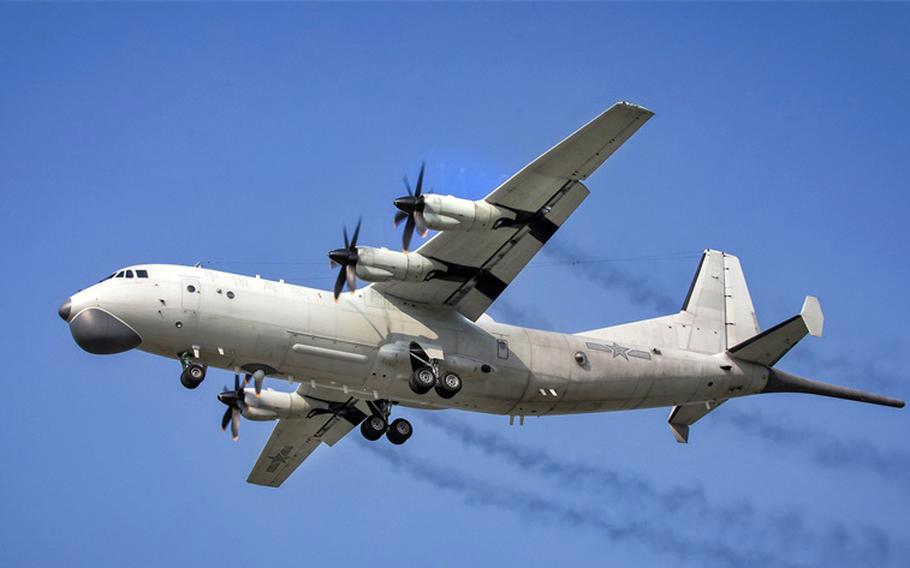
A Chinese anti-submarine patrol aircraft takes off for training on Aug. 15, 2024. (China Military Online)
TOKYO — China claims an “unexpected obstruction” forced one of its military aircraft into Japanese airspace this summer, according to diplomatic sources quoted by Japan’s Kyodo news agency.
China admits no wrongdoing by the Y-9 surveillance plane on Aug. 26 and makes no promises to take steps to avoid a repeat of the incident, Kyodo reported Saturday. The “obstruction” may be a reference to Japanese forces that tracked the Chinese plane, according to the news agency.
The Japanese government dismissed the Chinese claims as “nonsense,” Kyodo reported, citing the same unnamed sources.
The incursion, just southeast of the Danjo Islands, about 100 miles southwest of Nagasaki, lasted two minutes and sparked an intercept by Mitsubishi F-2 and F-15 Eagle fighter jets, a spokesman for Japan’s Joint Staff said the following day.
Japanese government officials asked their Chinese counterparts for a full explanation of the incident during a high-level meeting on Oct. 23, according to a news release posted by Japan’s Ministry of Foreign Affairs that day.
The flight was a “grave violation” of Japan’s sovereignty and a threat to its security, then-Defense Minister Minoru Kihara told reporters Aug. 27.
“It is completely unacceptable,” he said. “We filed extremely severe protests through diplomatic channels on the same day and strongly asked for measures to prevent recurrences.”
Chief Cabinet Secretary Yoshimasa Hayashi the same day described the Chinese flight as the first “confirmed and announced” intrusion by China since Japan began scrambling its fighters against intruding aircraft.
Japanese Prime Minister Shigeru Ishiba will likely ask Chinese President Xi Jinping for more information about the incident when the pair meet during multinational gatherings in South America this month, Kyodo reported.
Beijing’s claim that the intrusion was accidental is a positive sign, according to James Brown, an international affairs expert at Temple University’s Japan campus.
“It suggests that they wish to deescalate,” he said by email Monday.
However, Shirley Kan, a security specialist with the Hawaii-based Pacific Forum think tank, said Beijing isn’t interested in deescalating.
The number of unsafe intercepts of U.S. and allied aircraft by the Chinese military have increased since the latter part of 2021, she said by email Monday.
Beijing understands strength, so the United States, Japan and other allies and partners are boosting deterrence, Kan wrote.
“It would be prudent for Japan to maintain its strong posture and steady consistency to demonstrate it will continue to uphold its sovereignty as well as international rules for the freedom to fly, sail, and operate as laws allow,” she said.
Stars and Stripes reporter Hana Kusumoto contributed to this report